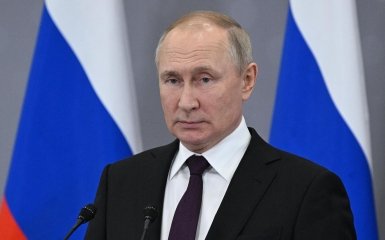Putin's obsession with the history of Ukraine and the Slavic peoples is far from new. In 2008, when Putin sat down with the US ambassador William Burns, who later became a CIA director, made his vision clear.
How Putin's obsession with history led him to unleash a war in Ukraine
According to Burns, Putin called Ukraine "not a real country." All of Putin's subsequent actions — from 2014 and the annexation of Crimea to the full-scale war that Moscow launched in 2022 stem from this belief. The country, which Putin constantly calls "artificial", has been fiercely resisting Moscow's attempts to end its independence for almost two years, regaining half of the temporarily occupied territories.
Putin's historical views are not unique to him. They have deep roots in the historical narrative of the Russian Empire that preceded the Russian Revolution of 1917. The very name "Ukraine" and the publication of books and newspapers in the Ukrainian language were banned in Russia at that time, and Ukrainians were called "Little Russians".
According to Western intelligence services, during the "Covid-19" pandemic, the Russian president spent a huge amount of time reading historical texts. The result was the treatise "On the historical unity of Russians and Ukrainians", which was published in July 2021 and read to every serviceman of the Russian armed forces before the invasion. Although this fixation on centuries-old events may seem strange, the question of Ukrainian identity is central to Russia's core myth and, therefore, to its current politics.
According to Putin, Ukrainian identity is an invention of Russia's enemy, Austria-Hungary at the beginning of the 20th century, The Wall Street Journal notes.
Parts of Ukraine that were under Austrian rule at the time, such as the city of Lviv, did become hotbeds of Ukrainian intellectual life — but only because writers, historians, and poets from Kyiv were forced to seek refuge there, as Russia declared the Ukrainian language outside by law.
However, acknowledging that the name Ukraine has been used for centuries is taboo in Russia. Last May, the head of the Constitutional Court of Russia, Valery Zorkin, handed Putin a 17th-century map found in the court's archives.
Why did I bring her? Because there is no Ukraine on it, Zorkin said.
Putin looked at the map with pleasure, once again explaining that Ukraine appeared only as a result of the Russian revolution of 1917.
The map that Zorkin showed in May is well known and exists in many copies. Right under Kyiv on the map there is an inscription: "Ukraine: Land of the Cossacks".
Why the influence of Russia's propaganda on the West cannot be underestimated
It is important to understand is that Russian propaganda in the West is extremely dangerous, because not so many people in other countries clearly understand why the war between Ukraine and the Russian Federation started and how it is currently developing.
Moreover, Western "experts" who work for the Kremlin rebroadcast their fakes even to the Ukrainian audience in order to sow discord and panic among our population.
VoxCheck, together with the Center for Combating Disinformation at Ukraine's National Security and Defence Council, analysed 26 Western "experts" and found that their activities have signs of a network. Publications and speeches for the period from 2014 to 2023 were taken into account.




